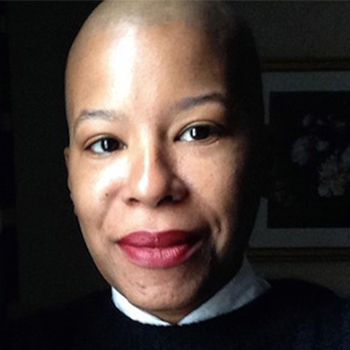The Alchemy Lecture, hosted by the Faculty of Liberal Arts & Professional Studies (LA&PS), seeks to harness the spirit of this ancient endeavour to foster new ways of thinking about the most pressing issues of our times. In its original form, alchemy focused on combining different elements to yield a compound that would inspire change and, in some instances, grant immortality.
The new Alchemy Lecture, which aims to run annually, is hosted by LA&PS and is a multi-vocal model that brings together a constellation of three to four thinkers and practitioners from different disciplines and geographies to think together on the most pressing issues of our times. Spearheaded by the Canada Research Chair in Black Studies in the Humanities and York Professor Christina Sharpe, York University’s new Alchemy Lecture will debut Nov. 10 at 6 p.m.
All are welcome. This is a hybrid event. Registration is now open.
The lecture, titled “Borders, Human Itineraries and All Our Relation,” brings together four alchemists. They are: Dele Adeyemois, Natalie Diaz, Nadia Yala Kisukidi and Rinaldo Walcott.

Adeyemo is an architect, artist, and critical urban theorist. Dele’s creative practice, research and pedagogy interrogate the underlying racial drivers in the production of space. Adeyemo is completing his PhD, titled Last Dark Continent, at the Centre for Research Architecture at Goldsmiths, University of London. He is the recipient of the Journal of Architectural Educators Inaugural Fellowship, the Canadian Centre for Architecture's Andrew Mellon Fellowship and Het Nieuwe Instituut’s Research Fellowship. Adeyemo’s projects have been presented internationally, including at the 13th Venice Architecture Biennale, the 5th Istanbul Design Biennial, the 13th Sao Paulo Architecture Biennial and the 2nd Edition of the Lagos Biennial. He currently teaches an architecture design studio at the Royal College of Art, London.
Diaz was born and raised in the Fort Mojave Indian Village in Needles, California, on the banks of the Colorado River. She is Mojave and an enrolled member of the Gila River Indian Tribe. She is the author of When My Brother Was an Aztec, winner of the American Book Award, and Diaz's second collection, Postcolonial Love Poem, was published by Graywolf Press in 2020 and won a Pulitzer Prize. She is a MacArthur Foundation Fellow, Lannan Literary Fellow, and a Native Arts Council Foundation Artist Fellow. She is an alumni of the United States Artists Ford Fellowship and now serves on the board of trustees. She is currently a Mellon Foundation Fellow. Diaz teaches at the Arizona State University Creative Writing MFA program where she is the Maxine and Jonathan Marshall Chair of Modern and Contemporary Poetry and directs the Center for Imagination in the Borderlands.
Kisukidi is an associate professor of philosophy at Paris 8 Vincennes-Saint-Denis University. She was vice-president of the Collège International de Philosophie (2014-2016). Member of Les Cahiers d’études africaines (CNRS, Ehess) editorial committee, she was co-curator of the Yango II Biennale, Kinshasa / DRC (July/August 2022). Kisukidi is specialized in French and Africana philosophy. She has published Bergson ou l’humanité créatrice (CNRS, 2013), Dialogue Transatlantique with the brazilian philosopher Djamila Ribeiro (Anacaona, 2021). Her first novel, La Dissociation (Seuil, 2022) just came out.
Walcott is a professor in the Women and Gender Studies Institute and former Canada Research Chair of Social Justice and Cultural Studies. He is also a member of the Graduate Program in Cinema Studies of Faculty of Arts and Science at the University of Toronto. His teaching and research are in the area of Black diaspora cultural studies and postcolonial studies with an emphasis on questions of sexuality, and gender. He is the author most recently of On Property (Biblioasis, 2021) and The Long Emancipation: Moving Toward Black Freedom (Duke University Press, 2021).
Originally published in YFile.
